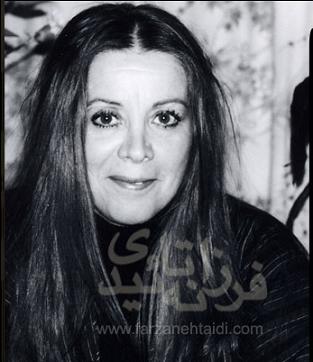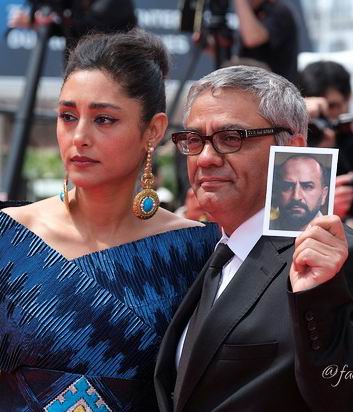|
|
| Welcome to Online Film Home! |
|---|
|
|
|
 |
In remebrance of Farzaneh Taidi
A Prominent Iranian Actress Dies in Exile at 75
Ramin Torkian, iroon.com
Farzaneh Taidi, an award-winning yet controversial Iranian actress from the 1970's, is often remembered for her role as Azar in Sirus Alvand's "A Cry Under Water".
Farzaneh Taidi passed away in exile in London at 75 on March 24.
Those of us who recall the pre-revolutionary Iranian cinema would remember her as a daring artist with a theatre background who preferred avant-garde roles such as “The eighth day of the week” for which she won the then prestigious Iranian Sepaas award.
She had starred in a number of other iconic films in the 1980s, including Massoud Kimiai's "The Soil" and "The Journey of the Stone", Hossein Rajaian's "The Eighth Day of the Week", Saeed Motalebi's "Salaat-e Zohr" and "The Dealers" by Hassan Mohammadzadeh.
With a great screen presence, combined with then modern looks she epitomised the beauty with brains and talent image of the Iranian woman of 1970s.
Iran was projected as a progressive nation that was modernising its values and Taidi was open to challenge taboo subjects and took on LGBTQ roles as well as the role of the first Iranian cinema female protagonist, a rape victim, in a psychological drama.
She also had the role of Shahin in “Not without my daughter” a film which in the time of the Iran hostage crisis faced a tsunami of criticism from the Iranian community because of its propaganda aspect as well as the fact that it touched many patriotic nerves.
In 1994 the British newspaper "The Independent" wrote in a separate report that the Iranian Ministry of Intelligence had decided to assassinate Farzaneh Taidi, Bani-Sadr (the exiled former prime minister) and Javad Dabiran by hiring a terrorist member of the "Irish Republican Army". The assassination did not take place, and Islamic Republic officials did not respond to the Independent's report.
Back in late 80’s I happened to be somewhere on the outskirts of London and during a lunch break I went to a post office. In front of the queue were Parviz Kardan and his son. I thought what are the odds! The relevance of mentioning this chance encounter is that the son was in fact also the son of Farzaneh Taidi.
Farzaneh Taidi and her husband Behrouz Behnezhad had been under house arrest in Iran and evidently had suffered tremendously. With the aid of people smugglers, risking life and limb, they had crossed the Pakistani boarder and were living in a modest London apartment.
One of their plays echoed their post traumatic state. It was about a woman who had died crossing the border and had been given a second chance in life. Her character, an angelic figure, had to face the harsh reality that a room in a London Bed and Breakfast was far from the reality of the promised Paradise. Again and again real life echoed their plays.
The diaspora public had an unsympathetic 'so what' attitude to the whole affair. In the middle of all this I noticed that the stress was taking its toll on both Farzaneh Taidi and Behrouz Behnezhad for they were trying to get their life back together again, they needed a circle of supporters and recognition for their craft.

During her stay in the United Kingdom, Farzaneh lived with Behrouz Behnezhad, another longtime actor of Iranian cinema and theater. Off stage Farzaneh was still suffering from Post traumatic stress. Behrouz was very protective of her but he had his own fill of stress as he was such a hard-working events organiser.
I hope that people would remember her with that attractive cheeky smile of Fuji coloured 1970’s covers as well as her boldness to play the controversial parts. My deepest sympathy goes to Behrouz and Farzaneh's family.

|
|
|
|

Cannes 2024 |
Choose an item to go there!
|
| |
|
|

